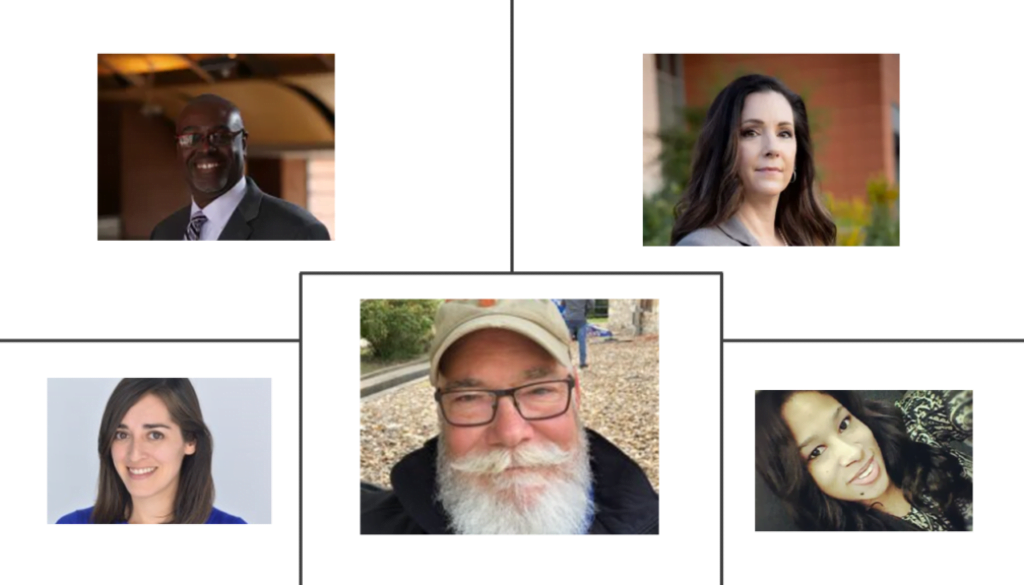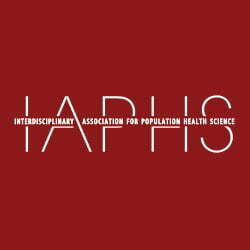New Board Members Elected
IAPHS StaffCongratulations to our new board members Mark Hayward, Jennifer Karas Montez, Marino Bruce, Elaine Hernandez, and Standte Stanley. Thank you to our Nominations Committee, retiring board members (Fred Zimmerman, Richard Carpiano, Dustin Duncan, and Julie Maslowsky), all our members who voted, and to all the candidates for their generous willingness to serve IAPHS.
Those continuing on the Board during 2022 and their 2022 positions include Roland Thorpe (President), Kathleen Mullan-Harris (Past President), Cindy Colen (Treasurer), Sue Bevan (Executive Director), Board members Taylor Hargrove, Darrell Hudson, Selena Ortiz, Katherine Theall, Steven Woolf, and Anna Zajacova. The new Board will be in effect on November 1, 2021, following our annual meeting.
President-Elect
 Mark D. Hayward, PhD
Mark D. Hayward, PhD
Professor of Sociology
Centennial Commission Professor in the Liberal Arts
Faculty Research Associate, Population Research Center
Dr. Mark D. Hayward is a professor of sociology, a Centennial Commission Professor in the Liberal Arts, and a faculty research associate of the Population Research Center at the University of Texas. Hayward is a health demographer and population health scientist with a long history of NIA and NICHD research grants supporting his research program. Currently, his work is focusing on two major questions: 1) adult health and mortality trends and disparities, and 2) early life developmental origins of cognitive health and dementia in the older population. Hayward is a recipient of the Matilda White Riley Award from the National Institutes of Health for his contributions to behavioral and social scientific knowledge relevant to mission of NIH.
Dr. Hayward will serve as the President-Elect in 2022, President in 2023, and Past-President in 2024. In 2022, he will appoint individual(s) to chair the 2023 Program Committee as well as other new members of IAPHS committees in 2023.
Board Members
 Jennifer Karas Montez, PhD
Jennifer Karas Montez, PhD
Professor of Sociology
Gerald B. Cramer Faculty Scholar in Aging Studies
Director of the Center for Aging and Policy Studies
Co-Director of the Policy, Place, and Population Health Lab
Syracuse University
Dr. Montez investigates trends and disparities in population health since the 1980s and the growing influence of US state policies and politics on those outcomes. A major focus of her work has examined why health trends are particularly worrisome for women, for people without a college degree, and for those living in states in the South and Midwest. Her research on these topics has been featured in outlets such as the New York Times, BBC, NPR, and CNN. It has been funded by the National Institute on Aging, Robert Wood Johnson Foundation, Carnegie Corporation, and National Science Foundation. Montez received her PhD in Sociology from the University of Texas at Austin and did her postdoctoral training as a Robert Wood Johnson Foundation Health and Society Scholar at Harvard University.
“I am excited to join the Board and help IAPHS stay strong and on the cutting edge of population health research and practice,” says Dr. Karas Montez.

Marino Bruce, PhD, MSRC, MDiv
Professor And Director
Program for Research on Faith, Justice, and Health
Department of Behavioral and Social Sciences at the University of Houston College of Medicine
Dr. Bruce is a sociologist who examines the full range of determinants as they relate to the onset and progression of chronic diseases among African American males over the life course and across generations. His current work leverages professional, educational, and clerical experiences as well as pilot funding from the National Institute of Aging to develop and evaluate comprehensive biopsychosocial models that specify how faith can “get under the skin” to slow declines in physical and cognitive functioning among African American men during middle and late life. This work has gained international attention as it has been featured on numerous global media outlets including USA Today, The Today Show, and Time magazine. He is Principal Investigator for Obesity Health Disparities PRIDE program (OHD PRIDE), a research training and mentoring program for underrepresented faculty, and is actively working to integrate IAPHS into OHD PRIDE

Elaine Hernandez, MPH, PhD
Medical Sociology and Health Demographer
Department of Sociology, Indiana University
Dr. Hernandez is studying the structural and social forces that contribute to health inequities. She is particularly interested in isolating when and how inequalities emerge, and whether protocols or policies can be used to ameliorate them. Her training is interdisciplinary, with degrees in public health administration and policy (MPH), medical sociology (PhD), and postdoctoral training in health demography.With collaborators across multiple fields, her work has appeared in Demography, Social Forces, the Journal of Health & Social Behavior, Social Science & Medicine, and Social Networks, and has been funded by the National Institutes of Health. Over the past decade, her research has fostered collaborations outside of the university, solidifying her commitment to connect with the broader community to both inform research and translate findings. Within the classroom, she primarily teaches medical sociology courses to students interested in entering health care fields.
Student Representative

Sandte Stanley, MA, MPH
Washington State University
Sandte Stanley is a first-generation Black and Native American (Muscogee [Creek]) doctoral candidate in the Department of Sociology at Washington State University (WSU). Broadly, Sandte studies racial and ethnic health and mortality disparities as they relate to social determinants of health, racism, and discrimination. Currently, her dissertation explores the association between the high mortality burden among racial and ethnic minorities and experiences of historical racial trauma and social inequities in Washington State. She has also spent much of her career investigating and publishing research pertaining to the prevention of breast, colorectal, and cervical cancer.
The Board provides oversight and strategic guidance to IAPHS. It meets by conference calls throughout the year and in-person just before the annual IAPHS Conference. The three Board Members elected this year will serve 3-year terms beginning November 1, 2021.






All comments will be reviewed and posted if substantive and of general interest to IAPHS readers.